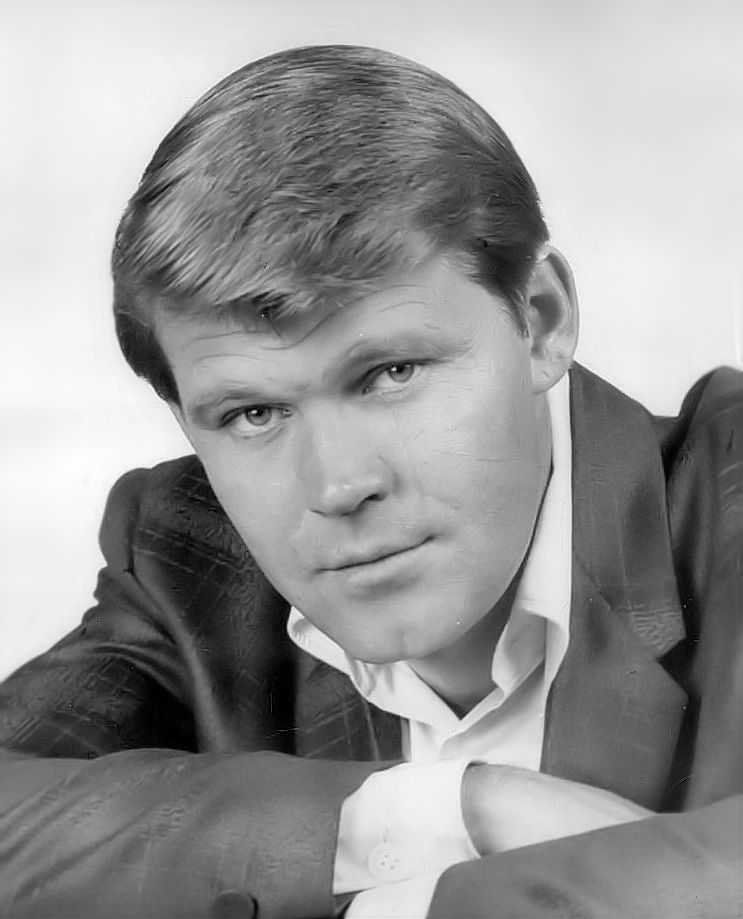
Last Friday I went to a concert at the Queen’s Hall in Edinburgh. The legend that is Jimmy Webb was telling anecdotes from his remarkable song-writing career and singing some of his hits. The support was Ashley Campbell, Glen Campbell’s daughter. At the age of 75, the targets he set for his voice were ambitious, and the once dazzling keyboard technique faltered at times, but he was still great. The complexity of his playing is more like a classical musician. He studied music in California, to the distress of his Baptist minister father. He wrote a musical in his sophomore year, then dropped out to become a huge success, winning a Grammy in 1968 aged 22 for By The Time I Get To Phoenix. He is nevertheless a genuine Oklahoma country boy who hoed and picked cotton, and loaded hay bales.
Webb told a great creation myth about Wichita Lineman (1968). Glen Campbell was agitating for a new song from him to follow up the success of By The Time I Get To Phoenix. Webb spent a few hours on an idea then sent it off, incomplete. It had no third verse. He heard nothing for a couple of weeks, then ran into Campbell at a recording studio. Webb eventually asked what he’d thought of the song and Campbell replied, ‘Oh, we cut that.’ ‘But it wasn’t finished!’ said Webb. ‘It is now,’ said Campbell.
I play Lineman on the piano – after a fashion – and sing along as best I can. No one can match Campbell’s fabulous tone and effortless five-octave range but it’s Webb’s chord changes and harmonies that are fascinating. It’s impossible to work out what key you are in – and in that sense it is similar to a classical work.
First we have to mention the bass intro. Carol Kaye was one of the Wrecking Crew group of session musicians as was Glen Campbell. Kaye’s background was in jazz. She and Campbell had played together on countless hits by other artists (California Dreamin’, These Boots Are Made for Walkin’, Be My Baby, The Beat Goes On, Good Vibrations). Glen Campbell even toured with the Beach Boys, replacing Brian Wilson when he was ‘indisposed.’ The Wrecking Crew all had jazz or classical music backgrounds and could (apart from Campbell) sight-read fluently. Kaye used a Fender but also had a distinctive six-string Danelectro bass guitar which Glen Campbell borrowed to play the guitar solo in Lineman. Kaye felt the number needed a strong opening and came up with the classic six-note figure that leads into the opening chords.
Those opening chords cycle between Fmaj7 and (the way I do it) Bb/C. Ah, one thinks, this song is going to be in F because we are switching between the I and V chords, which are the tonic and dominant chords of the key of F. Then the song begins: ‘I am a lineman for the county…‘ and suddenly we are in Bbmaj7. That’s OK, Bb is the IV chord of F, and we will surely soon be home. But then we move through Am to Gm, then Dm, Am, G and D and by the time we go ‘searching in the sun for another overload,’ it all becomes a bit uncertain. Are we in D now? The sheet music key signature is certainly the two sharps of D major.
The chorus follows the verse with more nice inversions. Inversions are chords that don’t have the root note on the bottom and are written with a ‘/’ before the alternative bottom note.
‘I hear you singing in the wire (Cmaj7), I can hear you through the whine (Gmaj7/B, Gm/Bb) and the Wichita Lineman (D/A, G/A) is still on the line…(Bb, C9).’ This is where Webb puts in the little morse code reference with a repeated high D when the lineman is, ‘still on the line.’ A normal song would now return to the key of D that we assume we are in – but instead we have Bb/C and we head off in the direction of F once more. The Campbell guitar solo over the verse leads us to another sung chorus (there is no third verse – it’s an unfinished song). The finale is a fade out on the Bb/C9 cycle with big strings and horns on top.
The miracle is how the melody flows naturally through these unusual chord changes without any tension. Lineman remarkable not only for the voicings and changes but for the depth of emotion expressed in the lyrics. Webb gives us a telegraph engineer with the soul of a poet.
